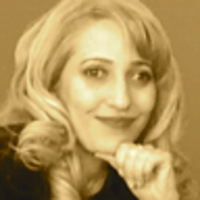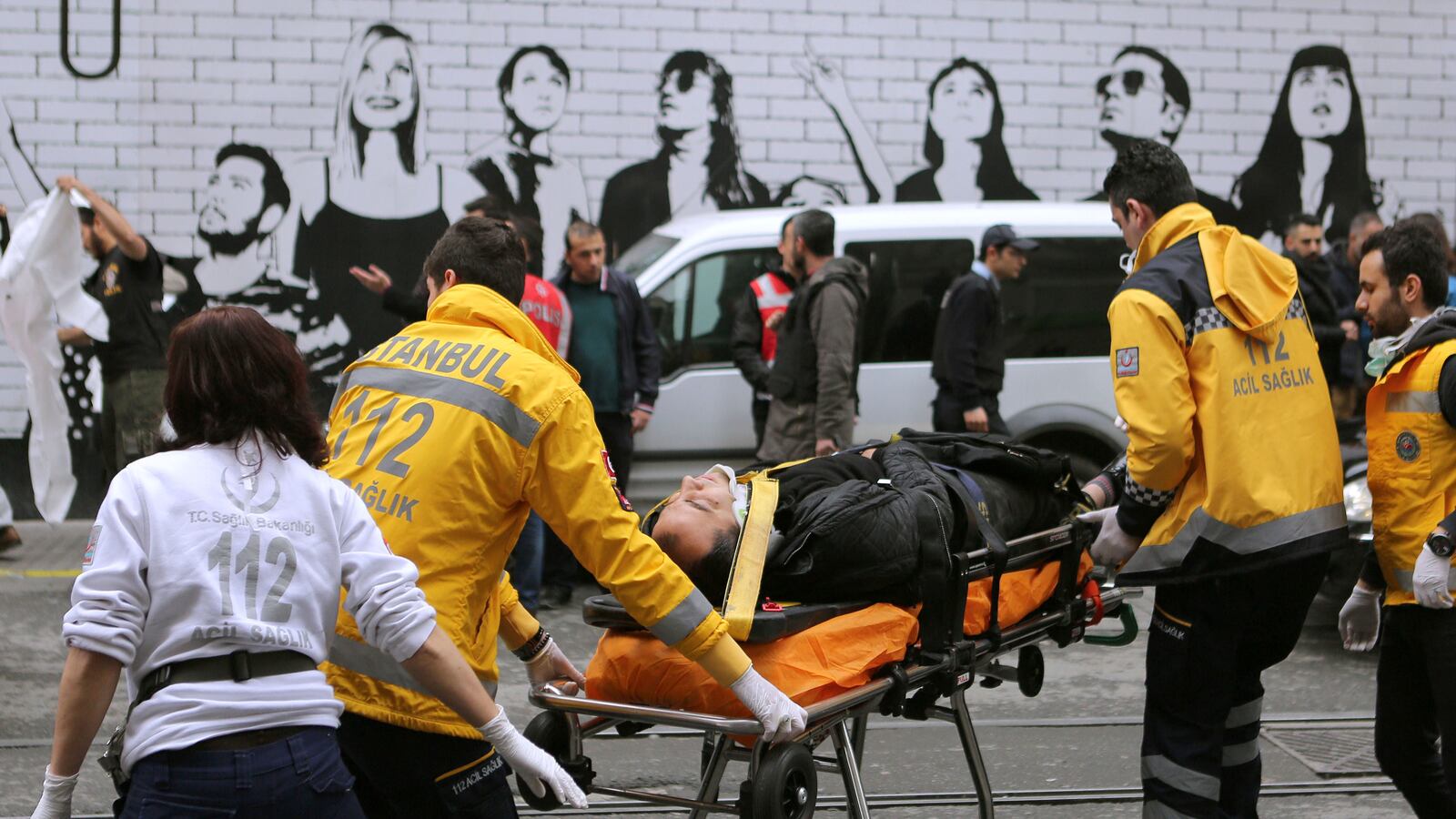ISTANBUL—No group has claimed responsibility for killing five people and injuring 37 in a suicide bombing that rocked the city Saturday morning in a tourist hotspot in front of Istanbul’s governor’s office.
Among the dead were three Israelis—Simha Siman Demri, Yonathan Suher and Avraham Godman—an Iranian citizen, Ali Rıza Khalman, and the bomber, who has yet to be identified. The wounded include Turkish citizens and 24 foreign nationals, including a child, who are being treated in hospitals. Seven of the injured are in critical condition, according to Turkish officials.
The explosion, at about 10:30 a.m. local time, shook nearby windows on Istiklal Street adjacent to Taksim Square, where hundreds of visitors and residents of Istanbul stroll through shops and restaurants. Istiklal was cordoned off as police investigate the incident. Officials say the casualties would’ve been higher if the attack had occurred later in the day when it becomes more crowded. Apparently, the bomb detonated before the intended target.
The Turkish government said suspects included the Islamic State and the Kuridistan Worker’s Party or PKK.
"On behalf of my country, nation and government, I condemn the murderers who committed this atrocious attack which directly targeted people without any discrimination, as well as all traitors who supported and instigated them to carry out such an inhuman act," Ahmet Davutoğlu said in a statement.
Turkey has been fighting wars on multiple fronts against ISIS and Kurdish groups in the southeast of Turkey, Iraq and Syria. A ceasefire broke in July between the separatist PKK and Turkey, and tensions have escalated since then resulting in hundreds of civilian casualties as Turkey pounds Kurdish cities in air raids.
This was the second attack targeting foreigners in Istanbul since January when 11 Germans tourists were killed and the third attack in the last month in Turkey’s major cities. The Turkish government identified the culprit of the January attack in Sultanahmet Square as a Syrian member of ISIS. The Kurdistan Freedom Hawks or TAK, an offshoot branch of the PKK, took responsibility for separate bombings on February 28 and March 13 in Ankara, killing 65 and injuring scores of others, including Turkish military personnel. The group said the attacks were in retaliation for strikes against Kurdish cities by the Turkish government.
Foreign and Turkish officials were warned of potential threats this weekend, which marks the spring Equinox new year, Nowruz, celebrated by Kurds, Iranians and Afghans. The German embassy near Taksim closed this week and warned its nationals to avoid tourist areas. Many Turkish and foreign residents of Istanbul stayed home expecting violence this weekend.
Turkey’s $34 billion tourism industry has dived in the last couple of years because of the rising instability.
The metro train normally packed on weekends was half full Saturday afternoon.
Ozlem Siyri, a 22-year-old Latin languages student at Istanbul University, was on her way to work at a gift shop. She said she’s frightened of the increased violence in her city. Siyri blamed Turkey’s President Recep Tayyip Erdogan.
“I’m afraid. People are dead. It’s this government’s fault. Erdgoan is selfish.”
Many Istanbul residents echoed the same criticism against their government.
Memduh Yucel, a retired engineer, was headed to Taksim to see friends.
“I have lived in Istanbul for 60 years. I will not be afraid of terror. But this Turkish government that I hate is taking us to war and there’s no reason for war,” Yucel said.
When he arrived at the vacant Taksim metro station where commuters usually push their way through a crowd, Yucel’s face fell.
“It’s empty today. This makes me feel very bad.”
Taksim Square was eerily empty. One man fed a hungry flock of pigeons. A few resilient tourists braved the cold and took photos in front of the yellow tape closing Istiklal. Many of them were Iranians, who do not need visas to travel in Turkey.
“We arrived here last night. It’s our first time in Istanbul, it’s a pretty city. We feel a bit scared, afraid that something might happen to us,” said Murteza Daria Safar.
But he and his family ventured out despite their fears.
“We’d ask the government to make it safer. It should be able to control what these groups are doing,” said Mastana Moradi, his wife.
The couple said both Iran and Turkey are fighting against ISIS but asked why Iran isn’t as violent as Turkey.
Iranian Foreign Minister Mohammad Javad Zarif currently visiting Turkey condemned the attack and said the two countries must fight terror harder.
Ayhan Kaya, professor of international relations at Istanbul’s Bilgi University, said both the Turkish government and the PKK are consolidating their own power by using divisive nationalist rhetoric. The Turkish ruling elite should revisit the peace process with the Kurds. Turkish cities were already destabilized by developments in Syria – the Kurdish questions adds another layer of instability, he said.
“As for the international community, they should be more concerned about the state of democracy, human rights and freedom of speech in Turkey in order to help Turkey become more stable.”






